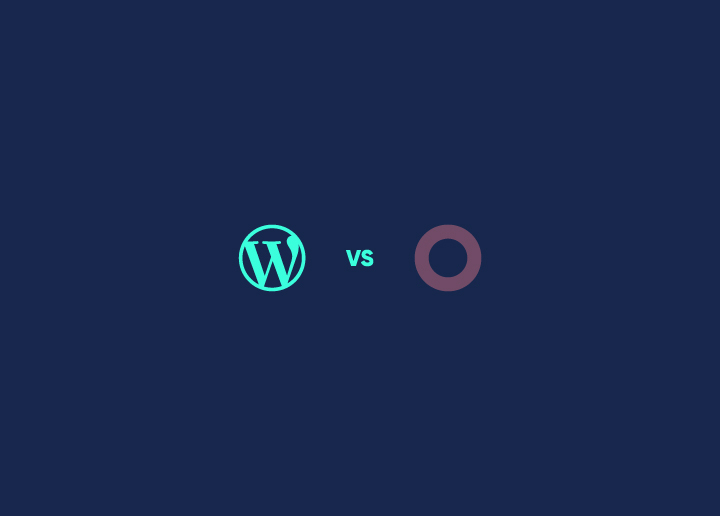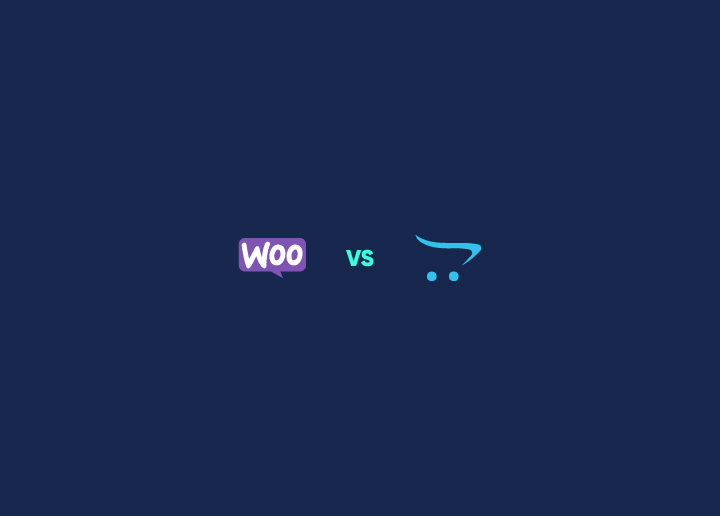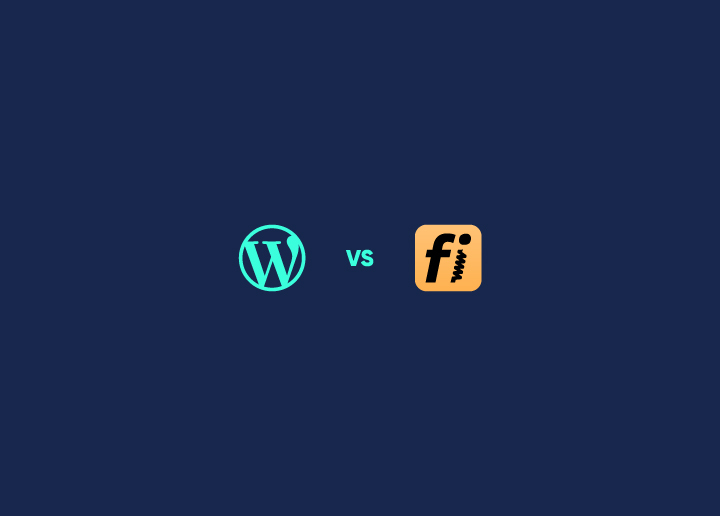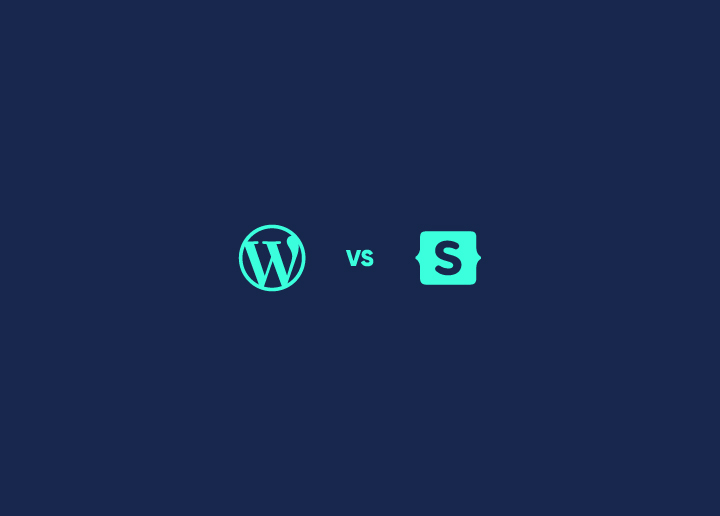Choosing the right platform for your website can feel like a daunting task, especially with so many options available. The decision can significantly influence not only your website’s performance but also your overall business success. As you embark on this journey, you may find yourself torn between two powerful contenders in the world of website development: Odoo and WordPress.
Each platform offers unique capabilities tailored to different needs, making it essential to understand their distinct features and functionalities. Whether you’re aiming to streamline business operations or create a dynamic online presence, making an informed choice will set the foundation for your digital strategy.
In this blog, we will explore the critical differences and similarities between Odoo and WordPress, equipping you with the insights needed to determine which platform aligns best with your goals.
Contents
ToggleOverview: Odoo vs WordPress
Odoo, originally known as OpenERP, is not just a website builder; it’s a comprehensive suite of business applications. It integrates various aspects of business operations such as CRM, inventory management, project management, and accounting, all in one cohesive package. This modular approach not only streamlines business processes but also allows for seamless management of online presence.
WordPress, on the other hand, reigns supreme in the content management arena. With over 43% of the internet running on it, this platform has evolved from a simple blogging tool to a robust CMS capable of handling everything from personal blogs to complex e-commerce sites. Its extensive plugin ecosystem and customizable themes make it an appealing choice for users of all skill levels.
Deciding Between Odoo and WordPress?
Make your choice easier with our expert WordPress development services. Whether you need a custom site or want to enhance an existing one, we have the expertise to help you succeed online.
Odoo: A Multifaceted Business Powerhouse
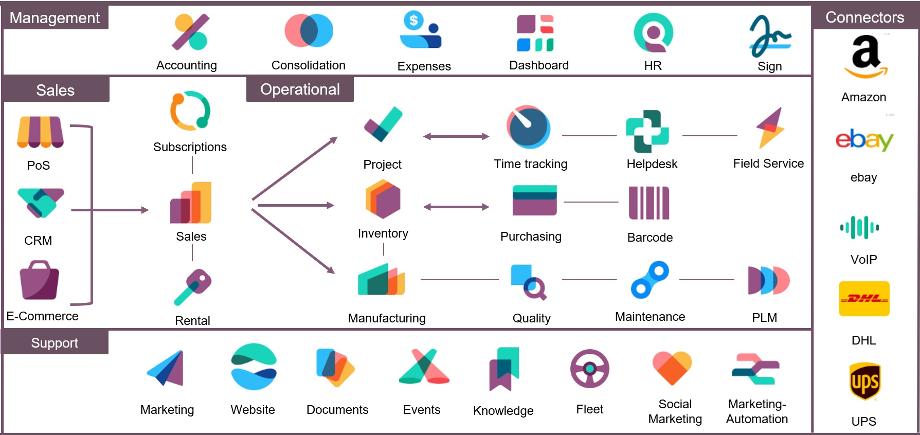
Let’s dive deeper into Odoo to see what makes it a formidable contender.
Odoo’s strength lies in its ability to bring together various business functions into a single platform. This integration is particularly beneficial for businesses looking to manage everything—from customer relationships to website management—under one roof. You can create a website that not only looks good but also aligns with your business processes.
The interface is designed with usability in mind, featuring an intuitive drag-and-drop builder that allows users to craft their website without needing coding knowledge. This user-friendly design makes it accessible for business owners who may not have a technical background.
Odoo comes equipped with robust e-commerce functionality. Whether you’re setting up a straightforward online store or a complex multi-channel e-commerce platform, Odoo provides tools for product management, inventory control, payment processing, and shipping logistics—all seamlessly integrated.
To thrive online, visibility is key. Odoo provides built-in SEO tools that help optimize your website content and meta tags, ensuring your site ranks well in search engines. This is particularly advantageous for businesses looking to enhance their online presence without investing in additional plugins.
WordPress Decoded: The Versatile Content Dynamo

Now, let’s shift our focus to WordPress and explore its dynamic offerings.
WordPress began as a blogging platform but has transformed into a multifaceted CMS. This evolution allows users to create everything from simple blogs to fully-fledged e-commerce sites, making it a versatile option for various types of users.
One of WordPress’s biggest draws is its extensive library of themes and plugins. Users can choose from thousands of options, allowing for significant customization without the need for technical expertise. This flexibility means you can create a site that truly reflects your brand’s identity.
WordPress shines in its user experience, particularly with the Gutenberg block editor, which simplifies content creation. This editor allows users to easily add and arrange content blocks—be it text, images, or videos—creating engaging and visually appealing pages effortlessly.
For those looking to sell online, WordPress offers WooCommerce—a powerful plugin that turns your site into a fully functional e-commerce platform. With features like product listings, shopping carts, and payment gateways, WooCommerce enables seamless online transactions.
A Feature-Focused Face-Off: Odoo vs WordPress
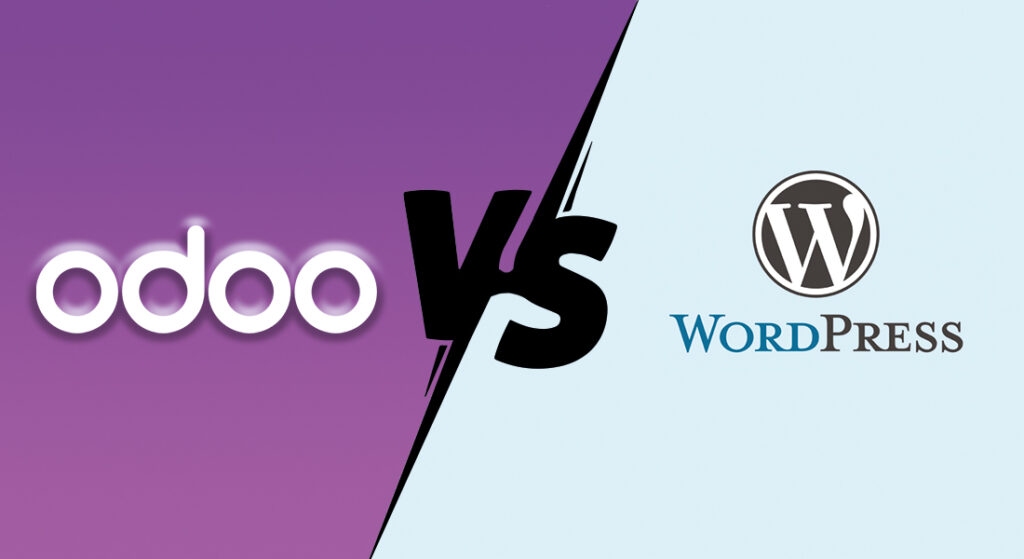
Let’s compare the features head-to-head to see where each platform excels.
Website Building Capabilities
Odoo’s Drag-and-Drop Simplicity: Odoo’s intuitive interface makes it easy for users to create visually appealing websites without coding skills. The drag-and-drop functionality allows for quick adjustments and customizations.
WordPress’s Rich Theme Ecosystem: With thousands of themes available, WordPress offers unparalleled design flexibility. Whether you prefer a vibrant look or a minimalistic design, there’s a theme that fits your vision.
Read: How to Set Up & Launch Your WordPress Site
E-commerce Functionality
Odoo’s Built-In Solutions: Odoo’s integrated e-commerce capabilities provide a cohesive experience, from managing inventory to processing orders—all within the same platform.
WordPress’s Plugin-Driven Approach: WooCommerce is a game-changer, enabling WordPress users to easily set up an online store with all the necessary functionalities to drive sales.
SEO Tools
Odoo’s Integrated Features: Odoo provides essential SEO tools directly within its platform, making it easier to optimize your website without relying on third-party plugins.
WordPress’s Plugin Variety: WordPress offers a plethora of SEO plugins, such as All in One SEO and Yoast SEO, giving users advanced options to fine-tune their website’s visibility.
Customization and Flexibility: Odoo vs WordPress

Customization is where both platforms shine but in different ways.
Odoo offers customizable forms and fields, which are particularly useful for businesses with unique data collection needs. Additionally, the platform supports integration with other applications, allowing users to tailor their digital experience according to their requirements.
WordPress users enjoy an extensive range of customization options. The Gutenberg block editor allows for creative freedom, enabling users to mix and match content types effortlessly. Furthermore, the vast selection of WordPress plugins means you can expand your site’s functionality as needed.
User Experience: Odoo vs WordPress
User experience can make or break your website-building journey.
Odoo’s Intuitive Interface: Odoo’s interface is designed to cater to business users, making navigation straightforward. The dashboard offers a centralized view of all features, which can be a significant advantage for managing multiple business functions.
WordPress’s Familiarity: WordPress’s well-organized dashboard makes it easy for users of all skill levels to find their way around. With its intuitive design, even beginners can create and manage their websites without feeling overwhelmed.
Both platforms receive praise for their user experiences, though WordPress often edges out due to its widespread use and familiarity among users.
Read: Reasons to Hire a Professional Agency for WordPress Design
Cost Analysis: Odoo vs WordPress

Understanding the financial commitment is crucial when selecting a platform.
Odoo operates on a subscription-based model, with costs varying based on the modules you choose. While the community edition is free, accessing advanced features may require a paid plan.
WordPress itself is open-source and free to use, but additional costs for hosting, premium themes, and plugins can add up. However, the flexibility of choosing what to invest in means you can control your budget effectively.
Odoo’s integrated solutions might lead to higher upfront costs for businesses seeking comprehensive functionality. In contrast, WordPress offers flexibility in budgeting, especially for startups and individuals looking to minimize initial expenses.
Read: WordPress Pricing: How Much Does A WordPress Website Cost
Support Systems: Odoo vs WordPress
Support options are critical for navigating challenges on either platform.
Odoo provides a wealth of documentation and community forums for users. For those requiring personalized assistance, professional support services are available.
WordPress boasts a vibrant community of users and developers, offering extensive resources, forums, and tutorials. This community-driven support is invaluable for troubleshooting and advice.
While both platforms provide robust support systems, WordPress’s extensive community and available WordPress support service providers & resources often make it easier for users to find quick solutions to their problems.
Read: Where to Find Reliable WordPress Help Online
Odoo vs WordPress: The Final Verdict
After an in-depth exploration of Odoo and WordPress, it’s clear that both platforms offer unique strengths tailored to different user needs.
Odoo is an all-in-one business management suite ideal for those who need integrated solutions for CRM, inventory, and e-commerce.
WordPress is a versatile CMS that excels in content creation, customization, and flexibility, making it suitable for a wide range of users—from bloggers to large enterprises.
Ultimately, your choice should align with your specific needs. If managing diverse business operations is your priority, Odoo is the way to go. However, if you’re focused on creating an engaging website with extensive customization options, WordPress is your best bet.
Before making a final decision, consider taking advantage of free trials or demos offered by both platforms. Exploring the interfaces and capabilities firsthand can provide valuable insights that help you choose the right platform for your needs.



